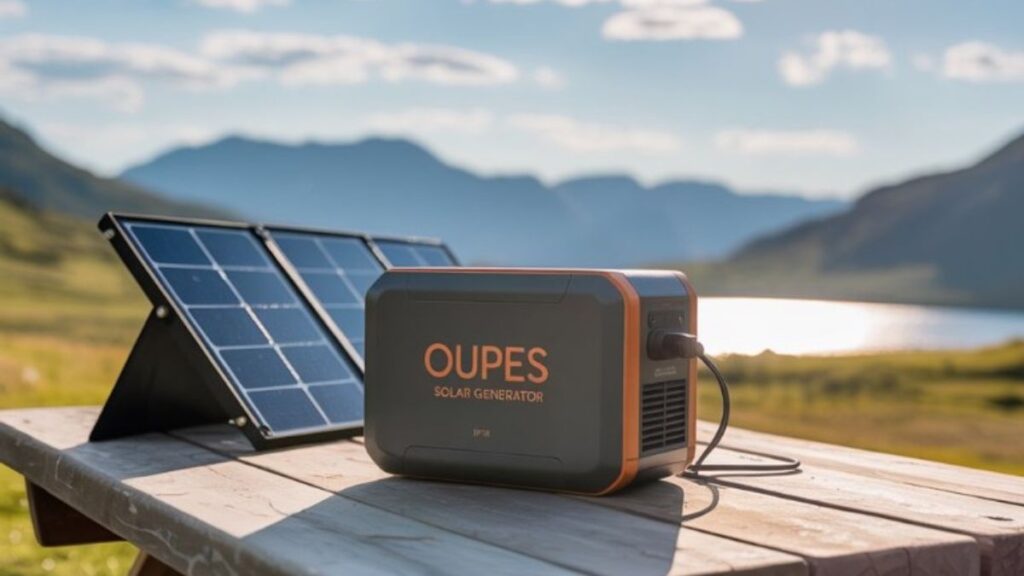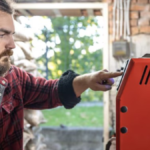generators are noisy, polluting, and expensive to operate, making them less practical for modern households. This is where the solar generator steps in an innovative power solution that combines sustainability with efficiency. Whether you’re camping in the wild, preparing for unexpected blackouts, or living off the grid, this technology provides dependable energy while protecting the environment.
Why the World Is Turning Toward Solar Power
Rising electricity costs, frequent power interruptions, and the global push for greener alternatives have made solar energy more relevant than ever. Unlike conventional energy sources, sunlight is free, abundant, and renewable. By capturing it with solar panels and storing it in high-capacity batteries, homeowners can secure energy independence.
A solar generator is at the heart of this movement. It works by storing solar energy in a built-in battery and then converting it into usable electricity when needed. This makes it far more convenient and eco-conscious than relying on noisy gas-powered models.
How a Solar Generator Works
The process is straightforward yet highly efficient:
- Solar Panels Capture Sunlight – Panels absorb solar energy throughout the day.
- Battery Storage – Energy is stored in a rechargeable battery inside the unit.
- Inverter Conversion – The stored energy is converted into AC or DC power.
- Reliable Output – You can plug in everything from smartphones and laptops to refrigerators and medical devices.
The simplicity of this process makes it not only user-friendly but also highly versatile across various situations.
Everyday Benefits for Households
- Eco-Friendly Living: Zero carbon emissions make them safe for the environment.
- Cost Savings: Once installed, the sun powers your devices without ongoing fuel costs.
- Versatility: From outdoor trips to emergency use, it adapts to different lifestyles.
- Silent Operation: Unlike gas generators, solar models run quietly in the background.
For families, investing in a backup battery system alongside a solar generator ensures that essential devices never stop working, even during extended outages.
Why a Backup Battery Matters
While a solar generator provides a renewable energy source, a backup battery adds another layer of security for your home. It ensures that when the grid goes down, you still have electricity to keep your household running smoothly.
Backup systems are designed to store excess energy, whether collected from solar panels or the grid itself, and release it during emergencies. With this setup, you’re protected against power failures, reducing your dependence on unstable infrastructure.
Choosing Between a Solar Generator and a Backup Battery
The truth is, you don’t have to choose one over the other they work best together.
- Go for a solar generator if you need renewable power outdoors, during travel, or for eco-conscious living.
- Invest in a backup battery if you want reliable home energy storage during blackouts.
- Combine both for complete energy independence at home and on the go.
OUPES offers advanced models in both categories, making it easy to customize your setup based on your lifestyle and energy requirements.
Steps to Setting Up Your System
- Assess Your Energy Needs – Identify how many devices or appliances you need to run.
- Select the Right Generator – Choose a solar generator with enough capacity for your use.
- Add a Backup Battery – Pair it with a home backup battery for long-term reliability.
- Install Solar Panels – Maximize efficiency by ensuring panels receive direct sunlight.
- Monitor & Maintain – Regularly check connections and keep panels clean for best performance.
By following these steps, you can build a powerful, self-sustaining system that keeps you secure in every situation.
FAQs
1. Can a solar generator power an entire home?
It depends on the capacity. Smaller units power essentials like phones and lights, while larger models can handle refrigerators, routers, and more.
2. How long do solar generators last?
With proper care, high-quality units can last 5–10 years or longer, thanks to durable lithium batteries.
3. Do they work at night?
Yes, they store energy collected during the day, making it available whenever you need it.
4. Is a backup battery the same as a generator?
No, a backup battery stores energy for later use, while a generator actively produces or converts energy.
5. Are solar generators safe to use indoors?
Absolutely. Since they emit no fumes, they’re safe for indoor operation.
6. Can I expand the system later?
Yes. Many OUPES systems support adding more solar panels or backup batteries.
7. How long does it take to recharge?
Charging speed depends on sunlight and panel size, but modern OUPES units recharge significantly faster than traditional alternatives.
8. Which is better for camping solar generator or backup battery?
For camping, a solar generator is the better option since it allows you to recharge anywhere under the sun.
Final Thoughts
Switching to a solar generator is not just about convenience it’s about choosing a cleaner, more sustainable lifestyle. Pairing it with a backup battery gives you complete control over your energy use, whether you’re off the grid, traveling, or simply preparing for the unexpected.







